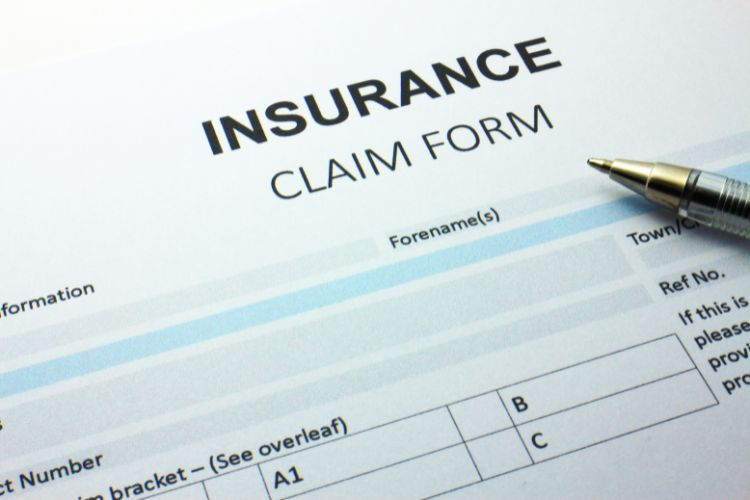As a landlord, you likely invested significant money and high hopes into your rental property. Over time, you started counting on the rental income flowing consistently. But even good tenants’ situations can change unexpectedly.
This can put you in an incredibly tough position if you don’t have a proper level of cover. So, does landlord insurance cover rent arrears? Will it help you through rough patches?
Yes, you could get a policy with rent default coverage. However, there are some factors and caps to consider.
This guide explains rent default plan specifics, from coverage limits to claim eligibility factors. Read on to ensure total peace of mind for your hard-earned investments going forward.
What Loss of Rent and Rent Default Coverage Means
It’s possible to get a landlord insurance policy with rent default and loss of rent covers. But, depending on the provider, you might need to pay for an extra addition over the basic landlord insurance.
For example, say a major storm (or any insured event) renders your property uninhabitable for repairs. The insurer will cover the expected rental income if your policy includes loss of rent.
Meanwhile, a rent default add-on means that insurers will offer protection in case tenants stop paying rent unexpectedly or abandon the property altogether.
Some insurance companies will even help you pay for the legal expenses of eviction proceedings or chasing unpaid rent.
Important Conditions for Claiming Rent Arrears on Insurance
You can get rental default coverage on your landlord insurance policy regardless of whether you self-manage or have a property manager handling things on your behalf.
That said, there are some conditions that you’ll have to keep in mind before you file a claim for rent arrears.
You Need to Take Mitigative Action Before Filling the Claim

Claiming for rent arrears shouldn’t be the first step you’ve taken along the way.
Insurers want to see good-faith efforts made beforehand. That means they want to know that you’ve formally tried to fix the situation first.
For example, you will likely need to provide copies of all overdue rental payment notices sent to the tenants. You might even need to outline all the reasonable steps you’ve taken, including tribunal applications to recover funds or court orders pursued to evict non-paying occupants.
By contrast, if you did little to nothing to address overdue rents before running to your insurer, they may deny covering those defaults under policy protections.
If the situation gets worse or irreconcilable, you may need to look at an eviction process.
You Should Tread Carefully Around Informal Rent Reduction Agreements
Say you previously agreed to reduce your rental rate for a particular tenant. Maybe you agreed to lower the weekly rent from $650 to $500 for a period of financial hardship they faced.
If the tenant paid the agreed rent consistently, you can’t then make an insurance claim for the $150 difference you gave up. Insurance claims can only account for total non-payment based on current executed contracts.
So, while well-intentioned rental reductions help retain tenants going through rough patches, they could backfire from an insurance perspective.
The Claimed Rent Arrear Shouldn’t Be Retrospective
You can’t file claims for property damages that happened before your insurance policy kicked in. The same principle applies to rental payments. Any losses pre-dating the policy are ineligible for payouts.
This clause actually highlights why it is important to consider landlord insurance early when you first start investing in rental properties. In fact, some property owners could choose to get full landlord coverage even if their tenants are trusted family members.
You Can’t Claim for Loss With the Same Tenant Twice

Finally, some insurers place limits around recurring claims involving the same non-paying tenant. If you’ve started a claims process for a specific tenant and your insurance provider covered it, a second incident may fall outside policy conditions.
Keep in mind that qualifiers like “same tenant” generally refer to at least one occupant living on the property during both periods of non-payment. So, even if the irresponsible tenant who didn’t pay left the premises, your claim could be denied just because their roommate is still there.
Limitations to Expect With Rent Default Optional Cover
There are several limits to keep in mind when it comes to rental default insurance coverage.
For one, many providers enforce a maximum number of coverage weeks. In addition to duration limits, you might find a specific total dollar figure limit on each default reimbursement per policy period.
Discuss these caps along with eligibility conditions upfront when evaluating policies. If you’ve already purchased a landlord insurance policy, you can check all the details in the product disclosure statement (PDS).
Nifty Tips for Property Owners: How to Avoid Rent Arrears
While rent default insurance delivers valuable financial protection, prevention is still the best way to go.
Here are a couple of handy tips to help you avoid irresponsible tenants and protect your investment property:
- Vet tenants: Do thorough background checks to make sure potential tenants can pay consistently and weed out applicants with red flags.
- Set Clear Expectations: Don’t leave anything to interpretation. Your tenant should know exactly when and how you expect the rent to be paid.
- Don’t Let Late Payments Accumulate: Try to communicate at first signs of late rent. Who knows? It could be just an oversight. In this case, a simple message/notice to the tenant can fix the situation.
Final Words
Policy inclusions and extras change from one provider to another. That said, it’s definitely possible to get a landlord insurance policy that covers rent arrears and losses in case an insured accident leaves your property uninhabitable for a while.
Hopefully, you’ll never need the rent default optional cover. But if you do, make sure to document any steps you take to remedy the non-payment situation. This can go a long way in supporting your insurance claim later!

